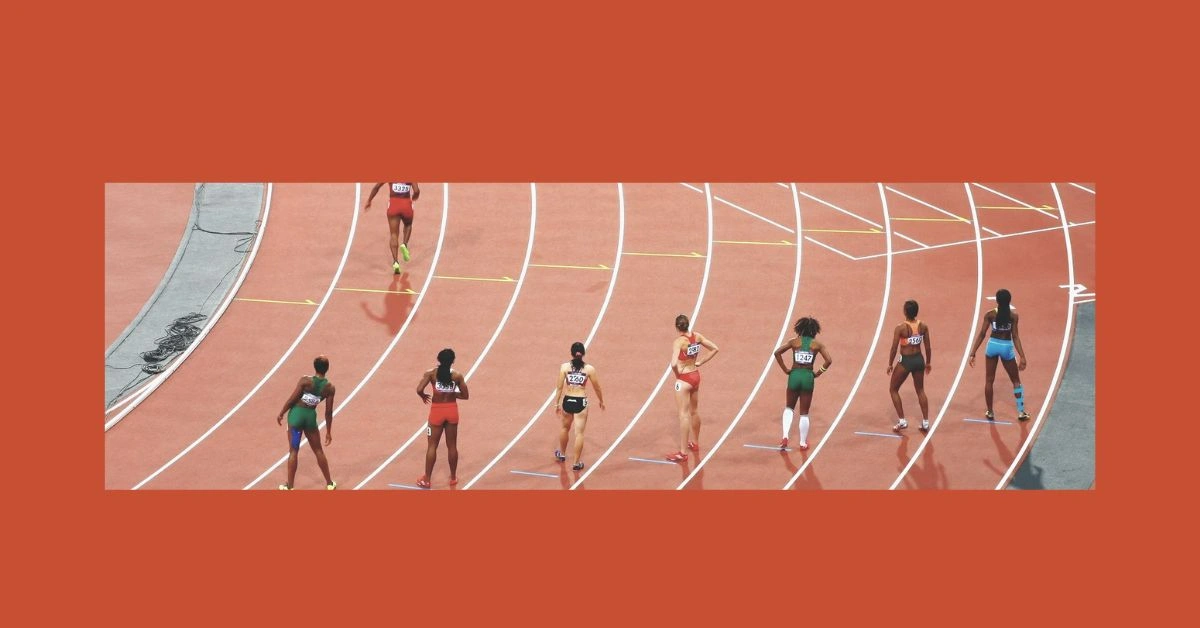The Olympic Games are one of the most significant and widely anticipated sporting events globally. With a history spanning over two millennia, the Olympics have evolved from a small religious festival in ancient Greece to a grand international sporting spectacle. This article explores the history and growth of the Olympics, highlighting key moments that have shaped this iconic event.
Table of Contents
The Origins of the Olympic Games (Ancient Greece)

The first recorded Olympic Games were held in 776 BC in Olympia, Greece, in honor of the Greek god Zeus. The ancient Games were not only a display of athleticism but also a religious and cultural gathering. The Games were held every four years and continued for nearly 12 centuries, making them one of the longest-running traditions in human history.
Key Features of Ancient Olympics:
- Athletic Events: The original Olympic Games featured foot races, long jump, discus throw, and wrestling. Over time, more events were introduced, such as chariot races.
- Religious Significance: The Games were dedicated to Zeus, and participants and spectators would offer sacrifices to the god before the competitions began.
- The Olympic Truce: During the Games, a truce would be declared, ensuring safe passage for athletes and spectators across warring Greek city-states.
Despite their importance, the ancient Olympic Games came to an end in AD 393 when Emperor Theodosius I banned all pagan festivals, marking the decline of the event for centuries.
The Revival of the Olympics (Modern Era)

The idea of reviving the ancient Olympic Games emerged in the late 19th century. The French educator Pierre de Coubertin is credited with founding the modern Olympic Games in 1896. Inspired by the ancient Games, Coubertin sought to promote international peace, unity, and athletic excellence.
The First Modern Olympic Games:
- Location: The first modern Olympics were held in Athens, Greece, in 1896.
- Participants: There were 13 countries and 280 athletes, all male.
- Events: The Games featured 43 events in 9 sports, including athletics, swimming, cycling, and gymnastics.
Coubertin’s vision was to create an event that could bring together athletes from around the world in a spirit of friendly competition. Over the years, the Olympics grew in size and importance, attracting more participants and countries.
The Olympics in the 20th Century
The 20th century saw the Olympics expand both in terms of sports and global participation. The Games became a symbol of international unity and competition, with countries from every continent joining the event.
Key Milestones:
- The Introduction of Women in the Olympics (1900): The Paris Games marked the inclusion of female athletes in tennis and golf, though women’s participation remained limited for many years.
- The Winter Olympics (1924): The first Winter Olympic Games were held in Chamonix, France, offering events in winter sports such as skiing, ice skating, and ice hockey.
- The Global Impact: The Olympics played a significant role in promoting international diplomacy and unity, especially after World War II. The Cold War era, however, saw political tensions infiltrating the Games, with boycotts from countries like the US and Soviet Union.
The Growth of the Olympics (Modern-Day)
Today, the Olympics are one of the largest sporting events in the world, bringing together thousands of athletes from over 200 countries. The Games have continued to evolve, with innovations in technology, broadcasting, and sports infrastructure. The Olympics now feature a wide array of sports, including new disciplines like surfing, skateboarding, and climbing.
Key Factors Driving Growth:
- Global Participation: More countries than ever are represented, with athletes from all corners of the world competing in various sports.
- Media and Technology: The rise of digital platforms and broadcasting has brought the Olympics into the homes of billions, making it a global spectacle.
- Sustainability and Innovation: Modern Olympic cities focus on sustainability, creating eco-friendly venues and infrastructure for the Games.
The Olympics continue to serve as a platform for breaking world records, fostering international cooperation, and promoting athletic excellence.
The Impact of the Olympics on Society

The Olympic Games have far-reaching effects on both the host cities and the world at large. Beyond the sports competition, the Games bring economic, cultural, and social benefits.
Economic Impact:
- Tourism: The host cities experience an influx of visitors, boosting the local economy through tourism, hospitality, and retail.
- Infrastructure Development: Hosting the Olympics often leads to the development of new sports facilities, transportation systems, and urban renewal projects.
Cultural and Social Impact:
- Promoting Global Unity: The Olympics serve as a reminder of the power of sports to transcend national borders and unite people from diverse backgrounds.
- Inspiring Future Generations: The Games inspire millions of young athletes to pursue their dreams, promoting physical fitness and healthy lifestyles.
Here’s a well-structured, SEO-friendly 1000-word article on The History and Growth of the Olympics:
The History and Growth of the Olympics
The Olympic Games are one of the most significant and widely anticipated sporting events globally. With a history spanning over two millennia, the Olympics have evolved from a small religious festival in ancient Greece to a grand international sporting spectacle. This article explores the history and growth of the Olympics, highlighting key moments that have shaped this iconic event.
The Origins of the Olympic Games (Ancient Greece)
The first recorded Olympic Games were held in 776 BC in Olympia, Greece, in honor of the Greek god Zeus. The ancient Games were not only a display of athleticism but also a religious and cultural gathering. The Games were held every four years and continued for nearly 12 centuries, making them one of the longest-running traditions in human history.
Key Features of Ancient Olympics:
- Athletic Events: The original Olympic Games featured foot races, long jump, discus throw, and wrestling. Over time, more events were introduced, such as chariot races.
- Religious Significance: The Games were dedicated to Zeus, and participants and spectators would offer sacrifices to the god before the competitions began.
- The Olympic Truce: During the Games, a truce would be declared, ensuring safe passage for athletes and spectators across warring Greek city-states.
Despite their importance, the ancient Olympic Games came to an end in AD 393 when Emperor Theodosius I banned all pagan festivals, marking the decline of the event for centuries.
The Revival of the Olympics (Modern Era)
The idea of reviving the ancient Olympic Games emerged in the late 19th century. The French educator Pierre de Coubertin is credited with founding the modern Olympic Games in 1896. Inspired by the ancient Games, Coubertin sought to promote international peace, unity, and athletic excellence.
The First Modern Olympic Games:
- Location: The first modern Olympics were held in Athens, Greece, in 1896.
- Participants: There were 13 countries and 280 athletes, all male.
- Events: The Games featured 43 events in 9 sports, including athletics, swimming, cycling, and gymnastics.
Coubertin’s vision was to create an event that could bring together athletes from around the world in a spirit of friendly competition. Over the years, the Olympics grew in size and importance, attracting more participants and countries.
The Olympics in the 20th Century
The 20th century saw the Olympics expand both in terms of sports and global participation. The Games became a symbol of international unity and competition, with countries from every continent joining the event.
Key Milestones:
- The Introduction of Women in the Olympics (1900): The Paris Games marked the inclusion of female athletes in tennis and golf, though women’s participation remained limited for many years.
- The Winter Olympics (1924): The first Winter Olympic Games were held in Chamonix, France, offering events in winter sports such as skiing, ice skating, and ice hockey.
- The Global Impact: The Olympics played a significant role in promoting international diplomacy and unity, especially after World War II. The Cold War era, however, saw political tensions infiltrating the Games, with boycotts from countries like the US and Soviet Union.
The Growth of the Olympics (Modern-Day)
Today, the Olympics are one of the largest sporting events in the world, bringing together thousands of athletes from over 200 countries. The Games have continued to evolve, with innovations in technology, broadcasting, and sports infrastructure. The Olympics now feature a wide array of sports, including new disciplines like surfing, skateboarding, and climbing.
Key Factors Driving Growth:
- Global Participation: More countries than ever are represented, with athletes from all corners of the world competing in various sports.
- Media and Technology: The rise of digital platforms and broadcasting has brought the Olympics into the homes of billions, making it a global spectacle.
- Sustainability and Innovation: Modern Olympic cities focus on sustainability, creating eco-friendly venues and infrastructure for the Games.
The Olympics continue to serve as a platform for breaking world records, fostering international cooperation, and promoting athletic excellence.
The Impact of the Olympics on Society
The Olympic Games have far-reaching effects on both the host cities and the world at large. Beyond the sports competition, the Games bring economic, cultural, and social benefits.
Economic Impact:
- Tourism: The host cities experience an influx of visitors, boosting the local economy through tourism, hospitality, and retail.
- Infrastructure Development: Hosting the Olympics often leads to the development of new sports facilities, transportation systems, and urban renewal projects.
Cultural and Social Impact:
- Promoting Global Unity: The Olympics serve as a reminder of the power of sports to transcend national borders and unite people from diverse backgrounds.
- Inspiring Future Generations: The Games inspire millions of young athletes to pursue their dreams, promoting physical fitness and healthy lifestyles.
Conclusion
The history of the Olympics is one of evolution, growth, and transformation. From its ancient Greek roots to the global phenomenon it is today, the Olympics have played a central role in shaping the world of sports and fostering international camaraderie. As we look to the future, the Olympics will undoubtedly continue to inspire athletes and fans alike, serving as a symbol of human achievement and global unity.
FAQs
Q1: When were the first Olympic Games held?
The first recorded Olympic Games were held in 776 BC in Olympia, Greece.
Q2: Who founded the modern Olympic Games?
The modern Olympic Games were founded by Pierre de Coubertin in 1896.
Q3: What sports are featured in the Olympics today?
The Olympics feature a wide range of sports, including athletics, swimming, gymnastics, basketball, football, and new sports like surfing and skateboarding.
Q4: How often are the Olympics held?
The Olympics are held every four years, with the Summer and Winter Games alternating every two years.
Conclusion
The history of the Olympics is one of evolution, growth, and transformation. From its ancient Greek roots to the global phenomenon it is today, the Olympics have played a central role in shaping the world of sports and fostering international camaraderie. As we look to the future, the Olympics will undoubtedly continue to inspire athletes and fans alike, serving as a symbol of human achievement and global unity.
To stay updated on the top sports events for 2025, check out our detailed list of the Top 10 Must-Watch Sports Events Taking Place in 2025.












